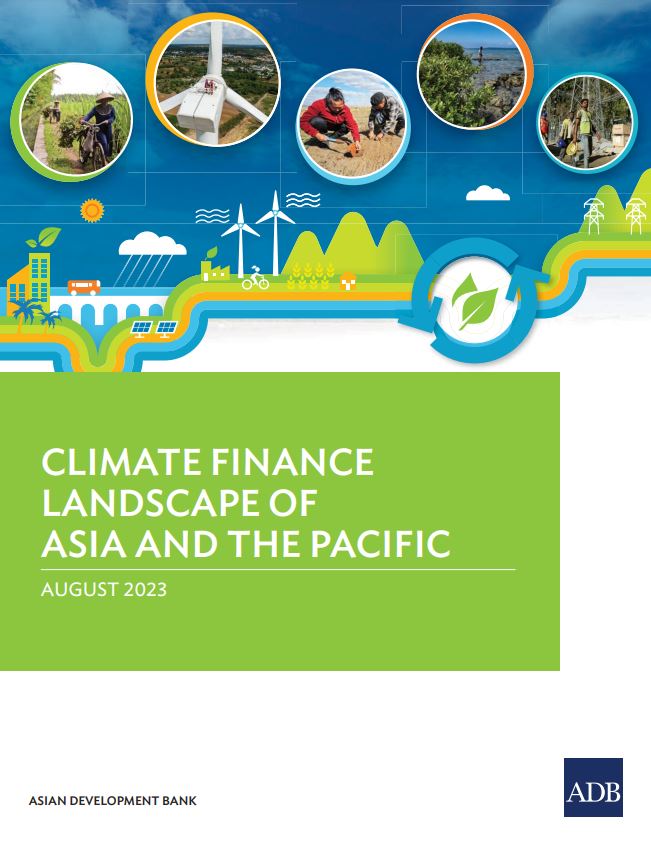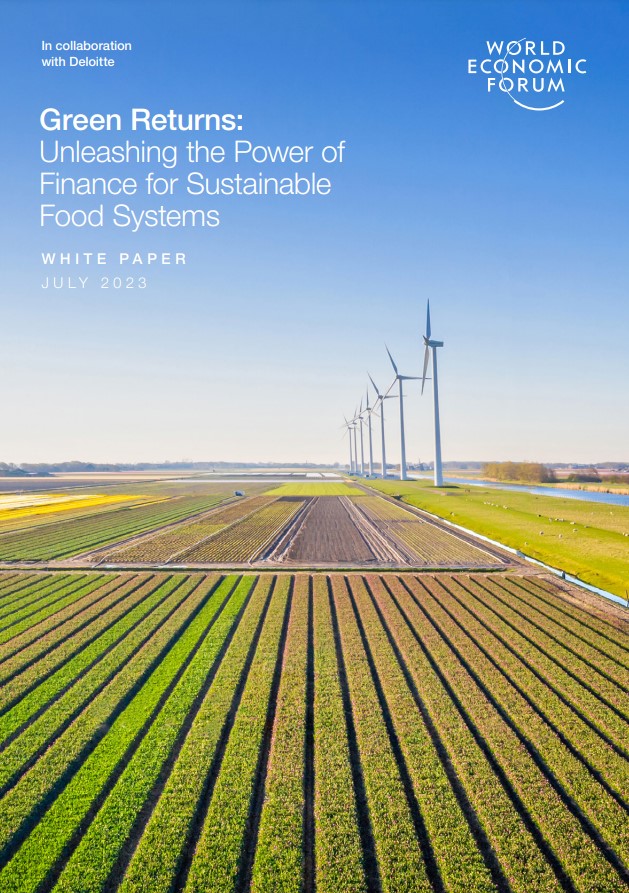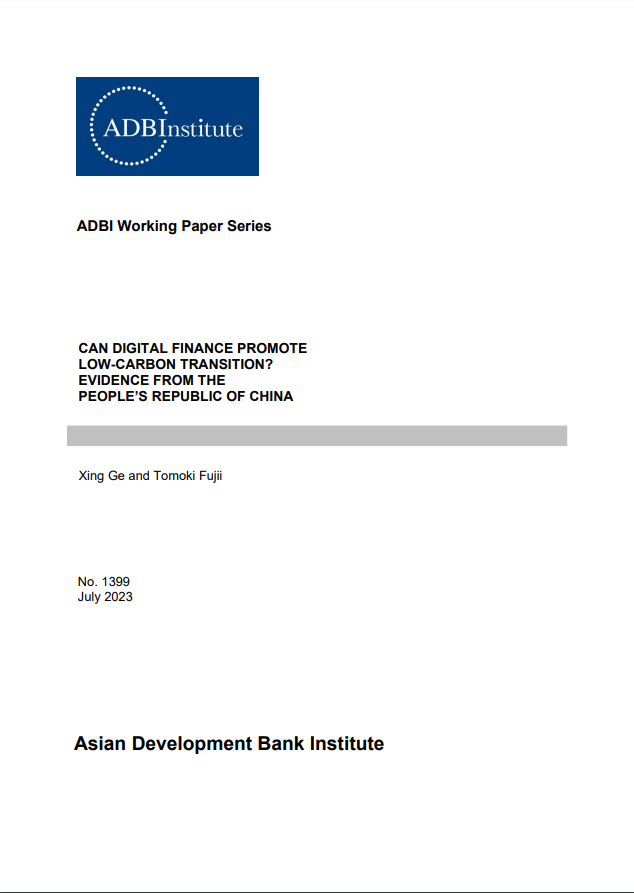
"This paper reviews the role of banks in addressing climate change and the shift to a low-carbon economy. It discusses how banks finance green innovation, low-carbon technologies, and adapt to climate-related risks. The paper also covers topics like credit access, carbon arbitrage, greenwashing, and financial regulation. It concludes by suggesting future research areas in sustainable banking."

"This paper studies the economic impact of fragmentation of commodity trade. It assembles a novel dataset of production and bilateral trade flows of the 48 most important energy, mineral and agricultural commodities. It develops a partial equilibrium framework to assess which commodity markets are most vulnerable in the event of trade disruptions and the economic risks that they pose. It finds that commodity trade fragmentation – which has accelerated since Russia’s invasion of Ukraine – could cause large price changes and price volatility for many commodities. Mineral markets critical for the clean energy transition and selected agricultural commodity markets appear among the most vulnerable in the hypothetical segmentation of the world into two geopolitical blocs examined in the paper."

"Charting a course for five new worlds
The first computers designed for business use were introduced to the workplace nearly 70 years ago. Today, a steady stream of innovative technological and scientific developments is constantly ushering in new breakthroughs that continue to impact the financial services sector—where trust is fundamental and security is essential. At this rate, how will the world in 2030 differ from our world today?"

"Entrepreneurship is significant in driving economic growth and job creation and can be a powerful tool for achieving the goals of gender equality and enhancing women’s empowerment.
However, there is little evidence on women entrepreneurs in Asia. To support the Evidence and Data for Gender Equality (EDGE) initiative, this study examined gender gaps in entrepreneurship using unique household data collected from Georgia; Mongolia; and Cavite, Philippines. The study provides insights into women and men entrepreneurs and their activities. It suggests, using multivariate analysis, that the determinants of income vary by gender and across countries."

"This paper documents a substantial change in the use of currency of invoicing in import and export transactions, precipitated by the war on Ukraine and the subsequent introduction of trade sanctions on Russia. Over the course of 2022, the share of Russia’s imports invoiced in yuan (CNY) increased by 17 percentage points. The use of yuan as a vehicle currency increased on average by an extra 4 percentage points among trading partners that have an active yuan swap line. This effect is found only for third countries that did not impose economic sanctions on Russia. The share of CNY invoicing increased differentially more for trade in internationally sanctioned dual-use and industrial-capacity goods.

"The Asia and Pacific region is a crucial part of global efforts to curb climate change. It contributes around 50% of the global greenhouse gas emission (GHG) total, and many countries in the region are vulnerable to the adverse impact of climate change.
This report assesses climate finance in Asia and the Pacific and analyzes how it can be harnessed by developing member countries to expand climate action and spur low-carbon, resilient growth."
Read more … Climate Finance Landscape of Asia and the Pacific

The paper From Fragmentation to Integration: Embedding Social Issues in Sustainable Finance aims to generate momentum within the financial system to tackle inequality and improve a common understanding of the social impacts of a market-based economy. Drawing insights from the climate agenda, it sheds light on how to catalyze action at the policy and regulatory levels through existing sustainable finance initiatives. Based on the collective expertise of several institutions and a global consultation, the paper provides key recommendations for governments, regulators and financial institutions to: support research on the systemic risk of socio-economic inequality for financial stability; adopt and improve social disclosure standards and risk management tools; and rethink the macroeconomic determinants of sustainable finance.
Read more … From Fragmentation to Integration: Embedding Social Issues in Sustainable Finance

Evidence from an OECD D4SME survey
Digitalisation has triggered a profound transformation of the retail sector, primarily composed of SMEs. While retail businesses are embracing more hybrid practices of managing online and brick-and-mortar channels, getting more traditional SME retailers fit for the hybrid era could open up new opportunities, with far reaching implications on the local economy. Through a novel survey conducted in six OECD countries (France, Germany, Italy, Japan, Korea, and Spain) in co-operation with e-commerce platforms, this report provides new insights to better understand retail SMEs’ perceived advantages and challenges of operating online sales through these platforms, with a particular spotlight on hybrid SME retailers.

"Inequality of opportunity (IOp) leads to misallocation of human capital and can affect economies via its impact on individual economic decision making. This paper studies the impact of IOp on investment, using a laboratory experiment. We randomized IOp, then subjects chose to invest in a risky asset or savings. Our results suggest that IOp impacts investment choices only for people who are penalized by their circumstances and only once they learn the impact of IOp on their relative position in the income distribution.
Read more … Inequality of Opportunity and Investment Choices

"This paper is a direct call to the finance community to reshape its strategies, incentivize across the value chain with innovative financial tools and invest responsibly for a greener, equitable future.
Representing approximately one-third of global emissions, food systems contribute significantly to the world’s greenhouse gas footprint, yet the transition to net-zero and sustainable food remains underfunded, with just under 4% of climate finance allocated to agriculture and food. Financial sector involvement can unleash the power of public and private investments and partnerships to harness the immense potential of transforming our food systems.
Read more … Green Returns: Unleashing the Power of Finance for Sustainable Food Systems

"The OECD-FAO Agricultural Outlook 2023-2032 provides a consensus assessment of the ten-year prospects for agricultural commodity and fish markets at national, regional, and global levels, and serves as a reference for forward-looking policy analysis and planning. Recent surges in agricultural input prices experienced over the last two years have raised concerns about global food security. This year’s Outlook demonstrates that rising fertiliser costs can lead to higher food prices.

"Using panel data of cities in the People’s Republic of China from 2011 to 2019, we analyze the impact of digital finance on low-carbon transition derived from a super-efficiency slacks-based measure data envelopment analysis. We find that digital finance promotes low-carbon transition, and this finding is robust with respect to the choice of sample, potential presence of measurement issue, choice of study period, presence of other policies, and potential endogeneity, among others. This impact, at least in part, is through increased green innovations. We also find evidence for impact heterogeneity across locations and by the level of low-carbon transition."


